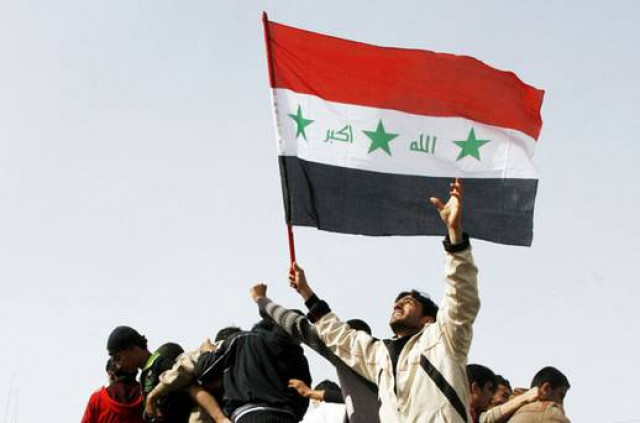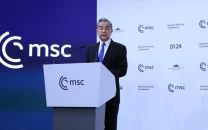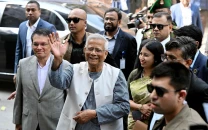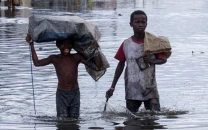Iraq demands Kurdish forces leave disputed areas
Iraqi army alleges Kurdish forces, who filled the void when army withdrew, of trying to take control of oil fields.

Iraqi army alleges Kurdish forces, who filled the void when army withdrew, of trying to take control of oil fields. PHOTO: REUTERS/ FILE
The unrest, spread over several days in multiple towns between forces loyal to the central government and protesters, had prompted the army to withdraw from several key towns with the security void filled by Kurdish peshmerga forces that the Iraqi army subsequently accused of looking to take control of key oil fields.
"The interior ministry calls for the brothers in charge of the security file in the KRG (Kurdistan Regional Government) to withdraw peshmerga forces from Suleiman Bek and Tuz Khurmatu districts, and Kirkuk province, because this area is under the authority of the central government," a statement posted to the ministry's website said.
The disputed territories are "part of the (central government's) range of security responsibilities, according to the Iraqi constitution", it added.
Oil-rich Kirkuk province and its eponymous capital, as well as surrounding areas including Suleiman Bek and Tuz Khurmatu, are a key part of territory that Kurdistan wants to incorporate over strong objections from the federal government in Baghdad, a dispute diplomats and officials say is a major threat to long-term stability.
The Kurdish deployments in April, which came as five days of unrest in Iraq killed more than 215 people, increased already high tensions in Iraq, adding a long-running Arab-Kurd dispute over territory to a stand-off between Sunni Arab protesters and the country's Shia-led government.
The latest statement, meanwhile, threatens to enflame an already tense situation in Iraq, after violence in May was the worst since 2008 according to the UN and official figures, as the country grapples with a protracted political deadlock and months-long protests by the Sunni Arab minority.
And while the violence has continued into June in much of the country, a fragile truce has thus far held in the northern disputed territories between central government forces and the peshmerga.



















COMMENTS
Comments are moderated and generally will be posted if they are on-topic and not abusive.
For more information, please see our Comments FAQ